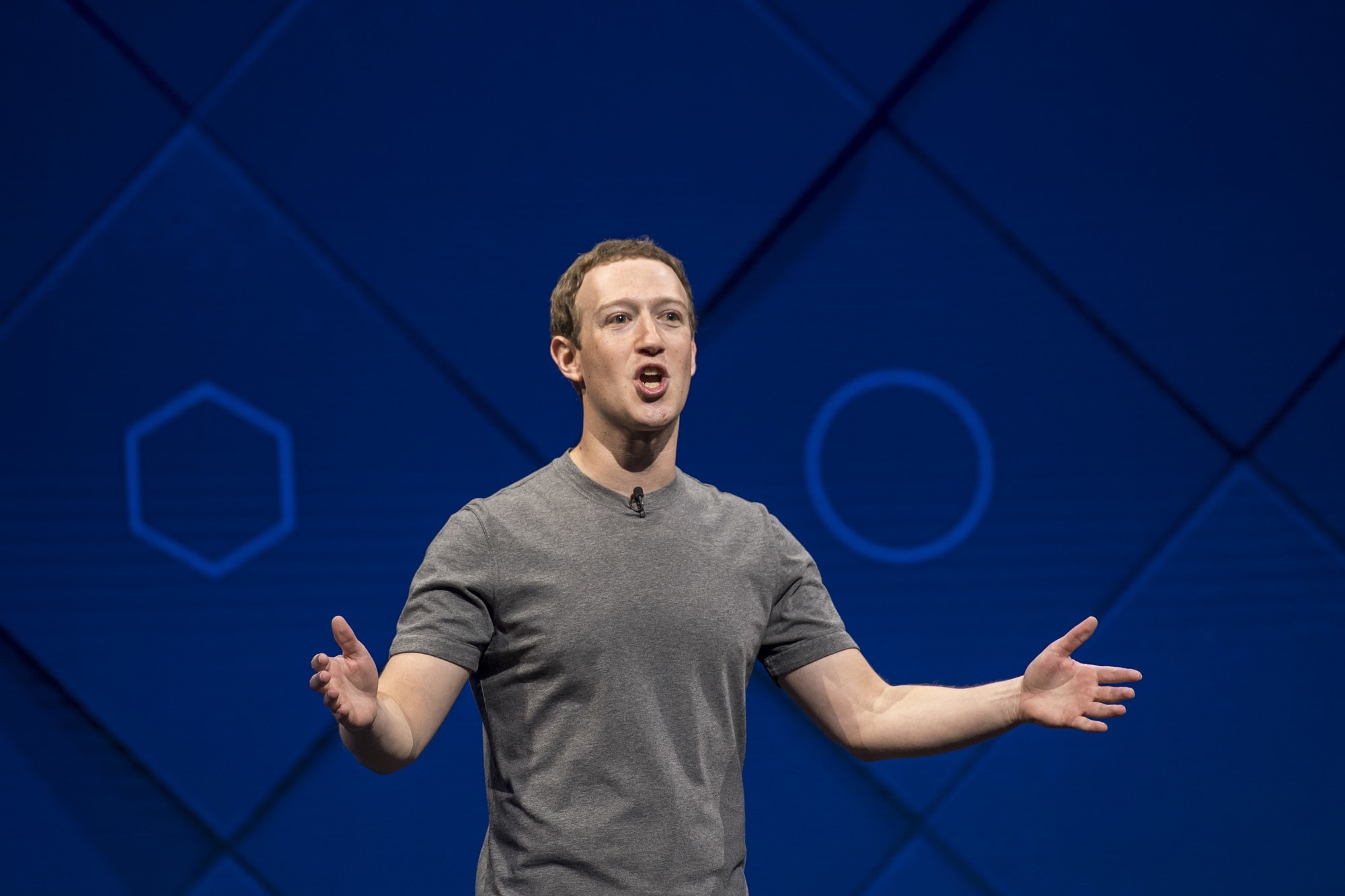
Facebook CEO Mark Zuckerberg at the F8 Developer Conference in 2017.
David Paul Morris | Bloomberg via Getty Images
Over the past few weeks, Facebook has been quick to launch a number of efforts to help combat the spread of the COVID-19 coronavirus, creating some much needed goodwill for the often embattled social media company.
Since 2016, Facebook has faced a relentless wave of scandals, many of its own creation, that have eroded the public’s trust in the company. But as the coronavirus has threatened the health of more than 250,000 globally and brought global markets to their knees, Facebook’s efforts to help governments, emergency response organizations, small businesses, its employees and its users are going a long way to repair the company’s fractured relationships.
“We want to make sure we’re doing what we can to help support the public health response,” Facebook CEO Mark Zuckerberg said on a media call on Wednesday. “Some of the work that these folks are doing is absolute heroic, and I’m personally very grateful for what they’re doing.”
An active response
Facebook has been actively helping with the coronavirus situation since Feb. 14 when the company used its Menlo Park headquarters to host the World Health Organization and leaders from companies like Google, Amazon and Salesforce to discuss what the tech industry could do to work together on solutions to the coronavirus outbreak.
The social media company has kept up that tempo.
With users, the company has been quick to ban ads for medical face masks, hand sanitizers, disinfectant wipes and COVID-19 test kits that could lead to scams or price gouging.On Wednesday, Zuckerberg announced that it would begin rolling out a coronavirus information center feature to be placed at the top of users’ News Feeds, encouraging them to take social distancing orders seriously.
With employees, the company has closed all of its offices and sent nearly all of its employees to work from home. The only employees who are still working at the office are those at its data centers who are there to ensure the company’s infrastructure stays online for users.
Additionally, the company has given each of its nearly 45,000 full-time employees a $1,000 bonus to help them with any costs for childcare of their work-from-home setups. Facebook has also offered its Portal video-calling devices to employees who request them.
The company is also going to give every employee “exceeds expectations” performance ratings for the first half of 2020. This will result in each employee receiving more than their full bonus for the six-month period, Facebook COO Sheryl Sandberg told CNBC’s Jim Cramer on “Mad Money” on Tuesday.
Externally, the company this week announced a $100 million program to help small businesses that have been impacted by the pandemic. Facebook said it will provide cash or ad credits to 30,000 businesses that are in need. Additionally, the company has continued to work with WHO and other health organizations to provide accurate information to its users. Facebook also this week announced that it would make its Workplace enterprise communications software free for the next 12 months for any governments or emergency response organizations that want them.
“We heard directly from them that they were in need, very nervous, and not able to pay a lot of their employees, and worried their doors would shut,” Sandberg said. “We’re trying to help businesses pay their employees but also shift their businesses online.”
As of Friday, there were more than 254,000 cases of the coronavirus with at least 10,000, according to Johns Hopkins University. In the U.S., there are at least 14,300 cases, with at least 210 deaths. Meanwhile, Facebook shares were down more than 28% this year as uncertainties around coronavirus drag down the markets. The S&P 500 has fallen 26%.
For Facebook, the past four years have been the most challenging period in its history.
Ever since the 2016 U.S. election, the company has been under fire for countless missteps and scandals. Most notably, the company came under criticism for its failure to police its platform for misinformation ahead of the election. Then, in March 2018, the company was hit with the Cambridge Analytica scandal, in which a data firm improperly accessed the data of 87 million Facebook users and used it to target ads for Donald Trump in the 2016 presidential election. That scandal resulted in a record-breaking $5 billion fine from the Federal Trade Commission. In 2019, four separate antitrust investigations were launched against the company.
Facebook won’t be able to rebuild trust with the public overnight, but when the company was presented with an opportunity to rebuild goodwill by being proactive and helpful during global health and financial crises, Facebook sprung to action and seized the moment.
Leave a Reply